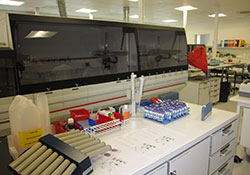Policy

WHO
A safe and adequate blood supply is a direct reflection of public health and population access to health services. Almost 40 years after the first World Health Assembly Resolution WHA28.72/1975, urging Member States to promote the development of nationally coordinated blood services based on voluntary non-remunerated blood donation, this priority is still on the health service reform agendas(Rome Declaration on Achieving Self-Sufficiency in Safe Blood and Blood Products, based on Voluntary Non-Remunerated Donation, October 2013)
WHO is focusing on country needs and tailor-made support interventions draw on the complementarity and longstanding collaboration with the European Commission(EC), the Council of Europe/European Directorate for the Quality of Medicines and Health care(CoE/EDQM), European Centre for Disease Prevention and Control(ECDC), other international partners and stakeholders.
It recommends that national policies governing blood services take a comprehensive view that links health promotion, disease prevention and care (primary care, hospitals) and the community. With safety of blood supplies under high public scrutiny, the need to reorient national blood policies towards integration of services, quality of care and patient safety is further expressed as part of universal access to health care.
Blood components and plasma derivatives have been included in the 18th WHO Essential List of Medicines.



